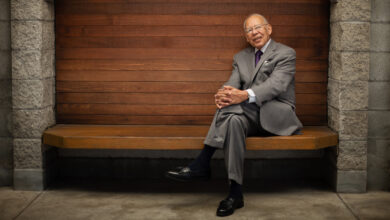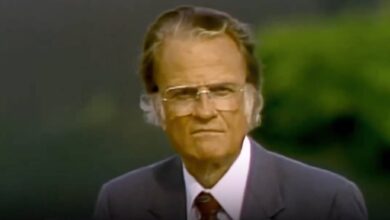Big, Big Market: Why CCM Filled ’80s and ’90s Homes

Recent histories, documentaries, and devotionals prompt fans to look back—and perhaps learn some lessons—from the genre’s heyday.
The kids and teens of the 1990s are now in their 30s and 40s, and the nostalgia of that era’s Christian music has us revisiting favorite albums and artists. This throwback fandom has revived decades-old praise songs like “Here I Am to Worship” and fueled movies that celebrate Christian Contemporary Music (CCM), like the 2021 Netflix summer camp musical A Week Away and the documentary love letter The Jesus Music.
With our nostalgia comes new interest in the history of the modern Christian music industry, its main characters, and the political and social conditions that produced what we now call CCM—not a musical genre but a niche industry that produced Christian music modeled on mainstream pop and rock, built on a shared faith rather than on a particular musical style.
An array of recent books and films have set out to tell the story of the Christian music industry. There’s Jesus Revolution, a feature film directed by Jon Erwin and Brent McCorkle; Mixtape Theology: 90s Christian Edition, a devotional and CCM retrospective by William “Ashley” Mofield and Rachel Cash; and historian Leah Payne’s new book, God Gave Rock & Roll to You. Later this year, documentarian Jason Ikeler will release his film, Safe for the Whole Family: How to Make a Christian Superstar.
Each attempt to capture the CCM story—whether historical, devotional, or fictionalized—assigns boundaries and attributes significance to particular figures, events, and albums. The growing body of work on the subject reflects a negotiation around which accounts are part of the “real” story of CCM, and who gets to tell it.
And as evangelicals debate the merits of self-criticism, the historiography of …
Continue reading…




